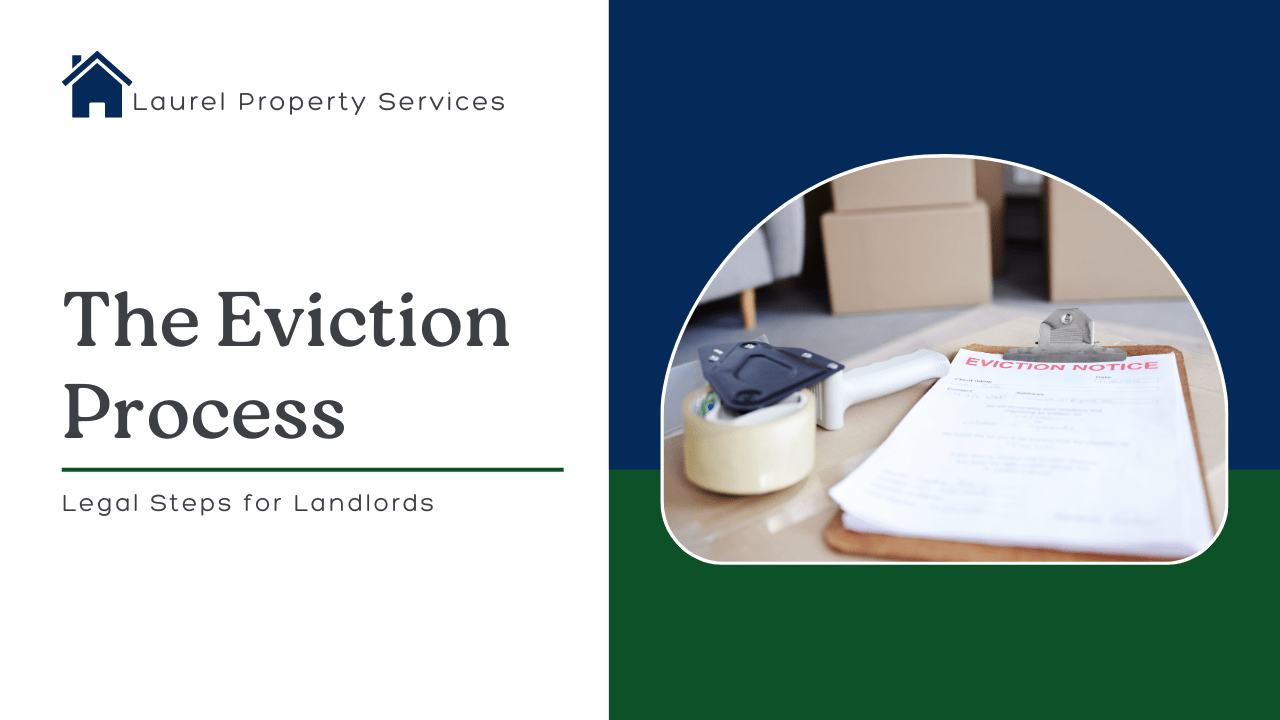The eviction process is often stressful. The most common reason that most landlords in Golden evict their tenant is the nonpayment of rent. So, if you’re at the point that you’re thinking about legal eviction, you probably have not collected rent in a while. You’re likely feeling stressed and frustrated.
We believe the best way to manage evictions is to avoid them. We’ll talk about some strategies for preventing evictions proactively but first, we want to outline the steps that make up the eviction process. You cannot simply show up to your tenant’s home and demand they leave. You cannot change the locks or cut the utilities. These things will only get you into legal hot water.
Here’s what you need to do when it’s time to evict.
Establish Your Reason for Eviction
You must have a valid and legal reason for evicting your Golden, CO tenant. Here’s a quick checklist of the just cause reasons that cause people to evict a tenant:
- Nonpayment of rent (most clear cut reason to evict).
- Violations of the lease agreement. This might be excessive damage to your property or subletting the rental unit without the landlord’s consent.
- Failure to move out after the lease term ends and the lease was not renewed.
- Engaging in criminal acts in the property.
Once you have established that there’s a legal reason to pursue an eviction against your resident, you start with the service of an eviction notice.
Before we dive too deeply into the process, we want to advise you that we are Golden property managers. We are not attorneys. We highly recommend hiring an attorney for the process.
Serve the Appropriate Notice
Depending on your reason for evicting, you’ll serve a Notice to Pay, a Notice to Comply, or a Notice to Quit.
In Colorado, you’ll have to issue a Notice for Lease Termination with Legal Cause to terminate the rental agreement if the tenant has violated some part of the lease agreement. Because the most common violations that lead to eviction include not paying rent, damaging the property, or engaging in illegal activities on the premises, you’ll want to make sure that the notice you serve clearly informs the tenant of what they’ve done wrong and how they can remedy the situation.
The other option is notice of substantial violation. This notice type requires a tenant to vacate the property immediately without allowing them to remedy the situation. It’s only going to be permitted in extreme cases, such as when you have evidence that there’s criminal activity happening at the property. If they cause significant damage to your rental home, you can also serve this type of notice.
Outside of the Notice of Substantial Violation, you’ll serve your tenant an eviction notice that’s specific to the reason that you’re evicting. The idea here is not to necessarily rush to eviction but to bring the tenant back into compliance, whether it’s a lease violation or a late rental payment.
The eviction notice you serve to your residents can be delivered in one of these ways:
- Deliver the notice to the tenant directly at the property.
- Serve the notice to a family member of the tenant who is at least sixteen years old and at the property.
- Post the notice in a prominent location on the property if the tenant is unavailable.
If your tenant does not comply with the notice within the specified period, then you have the opportunity to file an eviction lawsuit with the courts. You’ll need to prove that you’ve served the eviction notice, so make sure you document the service.
Court Hearing and Judgment
Once you have filed your complaint in a relevant county court, you’ll wait for the Summons and Complaint to be served on the tenant.
After the court has issued the Summons, you can expect your hearing to take place within 3 to 4 weeks, depending on the volume of evictions that the court is dealing with. The tenant has the option to file a written answer prior to the hearing, but if the tenant doesn’t file an answer, the court will most likely issue a default judgment and you’ll win your eviction case.
Once the case has been heard and the judge has ruled in your favor, the court will issue you a Writ of Restitution, which will serve as the tenant’s final notice to leave the property or be forced out by law enforcement. This period will provide the tenant with an opportunity to collect their belongings before being physically evicted by a sheriff.
Timing and Penalties with Colorado Evictions
In 2021, the eviction laws changed a bit. The Colorado General Assembly passed new laws that changed several policies related to how tenants are evicted. Here are the most important things to know:
- If you file for eviction due to nonpayment of rent, but your tenant ultimately comes up with the full amount owed before a court signs off on the eviction, then you have to accept the money. You won’t be able to proceed with the eviction as long as rent is caught up. Before this law was passed, there had been a 10-day “cure” period for tenants to resolve outstanding debts. Now, there is no deadline; the tenants have until the moment that the eviction proceedings begin to catch up with their late rent. However, you are only obligated to accept the full amount owed. You are not compelled to accept partial payments.
- Your tenants can use a health-and-safety defense in court outside of their rental debts. Previously, if you were evicting your tenant and they claimed there was mold in the property, they’d have to come up with the rent even while they filed a complaint about the mold. This is not necessary any longer.
- Late fees are capped at $50 or 5 percent of a tenant’s outstanding rent balance, whichever is higher. You can assess these fees only once per late payment. And, you now have to wait seven calendar days after rent is due to charge a late fee. You also cannot initiate eviction proceedings against your tenant just because they’re behind in their late fees.
Make sure you’re staying up to date on eviction law because things frequently change.
Avoiding Eviction in Golden, CO
These are a few of the ideas that will help to ensure that your rental property does not turn into a financial nightmare.
- Focus on rigorous and consistent tenant screening. You do not want to rent to people who have a history of evictions. Require a written application. Make sure that it’s completed and signed, and always collect an application fee so that you can invest in all the proper background checks.
- Check rental references when you’re screening. Make sure you aren’t talking to friends and family members. You want to get in touch with current and former landlords. Ask if rent was paid on time and if the lease agreement was followed. Find out if they damaged your property or caused problems in the neighborhood. Ask former landlords if they would rent to this tenant again.
- Run a full background check. The inquiry should include bankruptcy, criminal, and credit. Do a nationwide search.
- Don’t rush through the screening process. You want to comply with all fair housing laws and at the same time choose a resident who you likely will not have to evict.
You’ll also want to collect a full security deposit.
Developing a good relationship with your tenant is also an excellent way to avoid eviction. When you and your tenant trust each other. Good tenant relationships lead to fewer evictions because they’ll be invested in the property and in doing what they’ve agreed to do.
Eviction is always a last resort for our team at Laurel Property Services. We know that there are better ways to work out differences, even with the most difficult tenants. We have done one physical eviction in the last 9 years which is an extremely low eviction rate, and we’d be happy to tell you more about how we’re able to keep ourselves (and your property) out of eviction court.
 Please contact us at Laurel Property Services, Inc. In addition to providing property management in Golden, we also serve Wheatridge, Morrison, Lakewood, Arvada, and Genesee, CO.
Please contact us at Laurel Property Services, Inc. In addition to providing property management in Golden, we also serve Wheatridge, Morrison, Lakewood, Arvada, and Genesee, CO.



